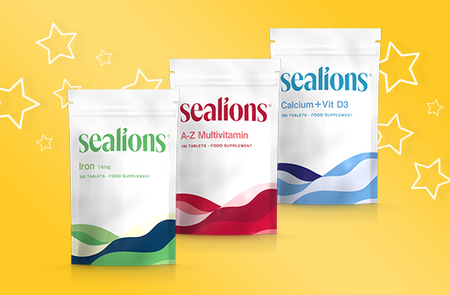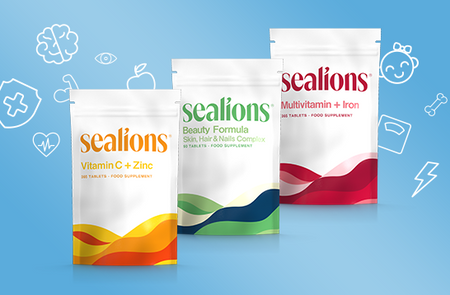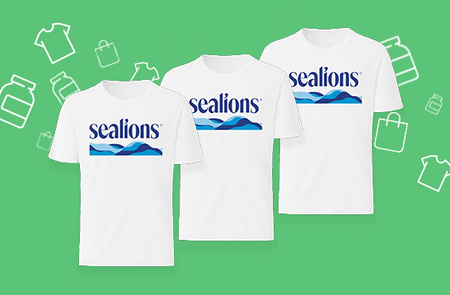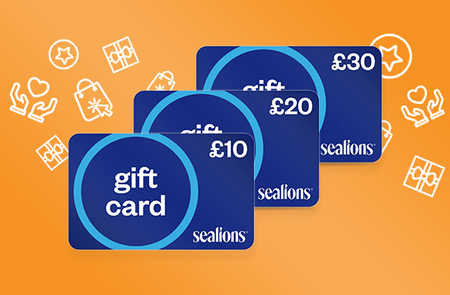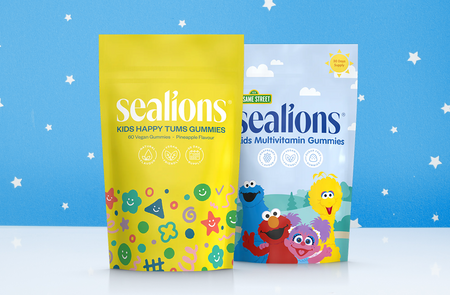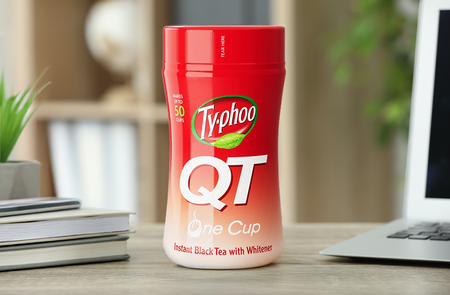
When Is The Best Time To Take Whey Protein For Weight Loss?
Whey protein can help you smash through your weight loss targets and feel great about yourself. It's not a miracle product by any means, but athletes and fitness fanatics swear by it.
Whether you mix it up into a shake, grab a protein bar or add it to your food, whey protein can be a worthy supplement when you want to blitz that fat and become a lean machine.
Find out when and how to take whey protein for weight loss in our complete guide.
Why protein is a dietary staple
Healthy eating... it's something we all know we should do, but that doesn't make it easy. Hectic schedules and the sheer availability of delicious foods on UberEats and Deliveroo are often too tempting (and easy) to resist.
The big problem is that convenience food and takeaways don't contain the recommended amount of fibre, protein, and healthy fats. So, while your spare time increases, so does your waistline. Along with that, your bank balance will continue to decrease.
You can get most nutrients through consuming a healthy and balanced diet, but protein is one of the nutrients that people struggle with most.
Protein supports vital functions
Protein is super important for your body, playing a starring role in a host of functions. Basically, it ensures everything runs smoothly:
- Tissue Repair: Proteins are the building blocks of your body. Think of them as the starting point for fixing muscle damage, maintaining healthy skin and boosting tissue growth.
- Hormone Regulations: Most of the enzymes that keep your body's chemical reactions in line are made from proteins. Everything from how you metabolise food to whether your moods remain stable relies on protein.
- Immunity: Your immune system also needs protein to fight off infections and keep you healthy. Studies show that people with low protein intake have a higher risk of developing infections (ScienceDirect).
- Backup Fuel: If you're thinking - wait... isn't that carbs? You're absolutely right. But protein can provide backup support for your body, giving you a much-needed boost when your carb levels deplete.
- Transporting Nutrients: Proteins are also like a taxi service for your body, transporting vital vitamins and nutrients to their desired locations.
How much protein do I need?
The general protein recommendations are 0.75g for each kilogram of body weight. On average, this works out to 45g daily for women and 56g for men.
Depending on age and size, children from infancy to age 14 require between 14.5 and 42.1 grams daily.
Here's where things get complicated: Athletes and people with high muscle mass will need more protein, while those with certain medical conditions might need to see a dietitian for customised protein intake requirements.
Despite the abundance of protein in animal-derived products and some vegan foods, research shows that around 36% of adults don't get their recommended daily intake (NCBI).
Remember, increasing your protein intake is essential if you're trying to lose weight.
Protein is the secret weapon that can help you lose weight
The days of low-fat and high-sugar diets are long gone, as dietitians today recognise the importance of healthy fats and protein for weight maintenance and loss. You'll struggle to lose weight if you don't get enough protein from your daily intake. Here's why.
Annihilate those hunger pangs
That cheeky McDonald's or Tesco lunch deal might seem harmless, but these foods are full of processed ingredients and lack nutrients. That's why you often feel hungry a couple of hours later and need a snack.
High protein diets keep people fuller for longer, reducing snacking between meals and keeping those hunger pangs at bay. People often find that protein eliminates sugar cravings, making consuming a varied and balanced diet easier.
Build muscle mass and keep it
Are you struggling to build or maintain lean muscle mass? An unhealthy diet can lead to fat build-up, especially around the abdomen for men, while women gain weight around the hips and thighs.
Muscle protein synthesis lets your body build new muscle fibres, resulting in lasting gains from strength training. Muscle growth and retention will be an uphill struggle if you don't get enough protein and Vitamin D.
Limit your body's ability to store fat
Even professional athletes have days when they don't burn more calories than they consume, but the body struggles to store protein as fat. While excess fats and carbohydrates are easy to store, going above your daily protein intake every now and then won't do much harm.
Supercharging your digestion
Everything you consume goes through a complex process. Your body breaks down foods and turns them into fuel, burning calories when doing this (also known as the Thermodynamic Effect of Food). Certain macronutrients have higher TEF levels.
Protein requires more calories than fats or carbohydrates, meaning your body will burn calories trying to digest it. Over time, this increases your chances of losing weight.
Is taking whey protein a good idea?
By now, you know that protein is a no-brainer for weight loss and maintenance—but what if you don't get enough of it? Whether you have a deficiency or follow a vegetarian diet, taking whey protein for weight loss is a great way to charge up your body and reduce your appetite.
Whey protein supplements are convenient and ideal when you're on the go. Let's look at why they're a good idea for your weight loss efforts.
Convenience
Preparing healthy protein-packed meals requires time and effort—how many of us can say we have both? Instead of grabbing convenience foods, whey protein powders offer convenience. All you need to do is grab your favourite flavour and mix it with milk or water. Then, you've got a delicious protein shake.
It's also easy to stick with your new routine, as you can mix protein shakes in the morning and enjoy a pick-me-up for lunch.
Nutrition
Buying high-quality whey protein supplements from a reputable brand means your body can take advantage of vital nutrients. Our whey protein powder contains three different types of whey and a host of essential amino acids, including Glutamine, L-Isoleucine, and L-Leucine.
Instead of calculating the protein and amino acid content in individual foods, you can get the nutrients your body needs in one convenient shake.
Flexibility
Not a fan of shakes? Grab some delicious whey protein bars and enjoy a healthy snack on the go. For example, Battle Bites Protein Bars recreate some epic flavours, including birthday cake, sprinkle donuts, and toasted marshmallows.
While whey protein shakes require some preparation in advance, you can carry protein bars in your bag and avoid unhealthy snacking.
Performance
Ready to unleash full-blown beast mode? When your body is prepped to perform, it can achieve incredible things. Imagine being able to work out for longer, go much harder and smash through your barriers. Protein plays a central role in all of these.
Consuming it after your workout can speed up muscle repair and recovery, enhancing your performance and ensuring you power past your goals.
When's the best time to take whey protein for weight loss?
Whether you choose whey protein powder or bars, taking it at the right time gives you the best results. Think about it like this: you wouldn't eat a banana before going on a long run, as you need energy while you're burning calories. It's exactly the same as consuming whey protein.
So, with that in mind, let's look at the best times to use it.
For breakfast
A healthy breakfast sets you up for the day, and drinking whey protein each morning means you'll retain energy AND won't have the urge to snack. Multiple studies highlight that consuming a protein-rich breakfast increases satiety and encourages weight loss.
Mix a whey protein shake-up instead of worrying about cooking anything, and you're good to go. If you have time or want to create something you'll enjoy, there are some fantastic protein shake recipes you'll want to make every day.
After a workout
Whether you're hitting the gym, doing resistance training, or getting your VR fitness on, post-workouts are one of the best times to drink whey protein. Quicker recovery times mean you can maintain an active lifestyle, no matter your age or fitness experience.
We recommend using up to 30 grams of protein 30 minutes to an hour after your session. Doing this will protect your muscle tissue and ensure you achieve gains.
Busting your cravings
When that chocolate bar or bag of crisps is calling out to you, grab a whey protein bar instead. OK, it might seem like a huge sacrifice, but protein bars can also be indulgent treats. For example, the Battle Bites Dynabar collection offers delicious flavours like chocolate fondant and peanut buttercup.
You'll also notice that protein bars keep you fuller for longer and prevent the effects of sugar spikes and drops.
Support your lifestyle
Everyone's needs are different, and you should base whey protein supplementation on your lifestyle. For example, if your main focus is on building and preserving lean muscle mass, you'll know to use shakes and bars after workouts.
But if your main problem is snacking in between meals, consuming protein when you feel hungry is better than reaching for an unhealthy snack.
Top tips for safely incorporating whey protein into your diet
A varied and balanced diet is the cornerstone of health and well-being. Despite whey protein's many benefits, it has some drawbacks. Understanding how to use it properly can prevent weight gain and side effects.
Here are our top tips:
- Moderation: Remember, consuming too many calories and not getting enough exercise = weight gain. If you're using whey protein supplements, you'll need to monitor your calories and ensure you burn more than you put in. This might mean limiting your diet or eating smaller meals.
- Know Your Limits: Whey protein is a by-product of the cheese manufacturing process, and it can cause side effects if you're lactose intolerant. Taking too much could also lead to gastric issues and kidney damage in those with pre-existing conditions.
- Be Realistic: You won't magically lose fat with whey protein and develop a six-pack overnight, but it can support a healthy diet and exercise. Consume plenty of whole foods and limit the unhealthy stuff. Stay active, and whey protein will play its role.
Are there any alternatives to whey protein?
Despite its many benefits, whey protein isn't for everybody. Luckily, there are plenty of other options available, depending on your needs and preferences. Whey protein alternatives include:
- Pea Protein: You've probably heard of pea protein, and many plant-based foods use it. If you can't use whey protein due to an intolerance or lifestyle preferences, pea protein can be a fantastic alternative.
- Soy Protein: As a go-to option for vegetarians and vegans, soy protein is convenient and has a nutty taste. While whey protein is easier to mix and usually has a smoother texture, soy protein can benefit heart health. Hemp Protein:
- Hemp protein: is relatively new on the scene, but its high levels of Omega-3 and Omega-6 make it an excellent source of protein and fibre.
Meal replacement shakes
If your main goal is to lose weight or maintain your results, meal replacement shakes have a slight edge over whey protein. They're formulated to replicate a balanced meal, with none of the bad stuff but an expert blend of vitamins and minerals. Meal replacements are ideal for a calorie-controlled diet.
Feel fuller and fitter with whey protein
Whatever your goals are, whey protein can play a major role in helping you achieve them. When combined with exercise and a healthy diet, you can look forward to muscle gain and the ability to maintain a healthy weight.
Buying whey protein products from Sealions gives you access to unparalleled quality and affordability. Our supplements use reputable ingredients but cost a fraction of what you'd usually save.
Tagged:

